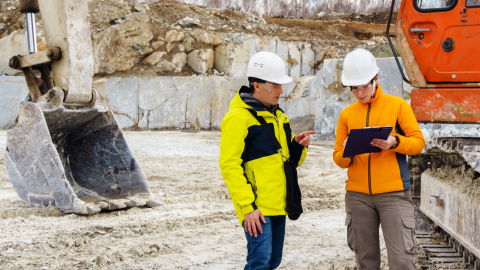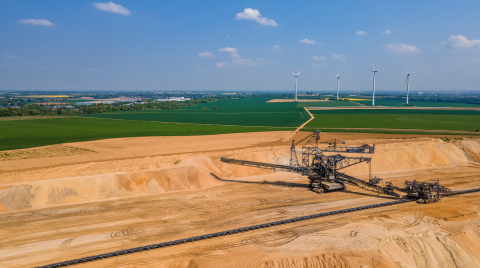
Improving community oversight of local development through contract transparency
Improving community oversight of local development through contract transparency
Creating a level playing field for all companies in Mali
The Publish What You Pay (PWYP) Mali coalition and the Office of the Auditor General (OAG) have made numerous calls for the publication of mining contracts. They are doing this because publication of contracts will help improve the monitoring of revenues received by local government and ensure that companies comply with their social and environmental commitments. Studies by both PWYP and the OAG show that a formalised policy for the disclosure of mining contracts and a unified legal framework in the mining sector, will produce investment opportunities for communities.
Mining contracts are only partially made public
Mali is a leading producer of gold but the Ministry of Mines’ website only has partial publication of some contracts. Contracts often have addenda and annexes and many of these have also not been made public. These documents may include important details on company requirements to local communities, which are not contained in the main body of the contract. A formal contract disclosure policy and a unified legal framework would improve knowledge and management of the sector.
Important issues in the management of mining revenues
The mining sector in Mali has a fragmented legal framework and there is no single mining code that applies to all companies operating in the sector. PWYP and the OAG believe this puts the Malian state in an unfavourable position vis-à-vis large mining companies. The 2012 Mining Code sought to address this imbalance (and other challenges). The code was particularly progressive on clauses related to the adoption of community development plans, environment protections and concerns related to mine closures. However, the law is not retroactive, which makes it a challenge for the Malian State to persuade mining companies to follow the progressive provisions of the 2012 Code.
Redistribution of mining revenues
The other major challenge in the sector, according to PWYP-Mali, is the management of “the patent”. “The patent” is a mandatory tax levied on mining companies intended for local development. “Patent” revenue represents approximately 1% of total revenue received annually by the State from the mining sector (see Mali EITI Report 2013, 2014 and 2015). At the local level, however, this revenue represents a windfall of more than 2 billion CFA francs, or approximately 3.5 million euros. This amount is distributed among local communities hosting mining sites and is a significant source of revenue for them. There is, however, no mechanism for direct payment by mining companies to local communities that are hosting mining sites.
Towards improvement of mining governance in Mali
Several reforms are underway to address the lack of a direct payment mechanism to local communities, including a reform of the 2012 Mining Code. Reforms will seek to create mining plans for community and regional development. Funds for this purpose will be financed by the state and by mining companies. The intention is for mining companies to pay directly into these funds, with a portion of the revenues dedicated to local communities.
The State has also put in place a Mining Cadastre Administration System, which outlines the surface areas covered by mining permits. This will also allow for the systematic publication online of financial information related to mining contracts.
To further increase transparency of the mining sector, PWYP-Mali is campaigning at local and governmental levels for the systematic publication of “patents” within the EITI framework.
Comparative analysis of mining contracts in Mali, PWYP-Mali:
- Comparative analysis of mining contracts in Mali [French]
- Study on the distribution of patents [French]
The 2015 Report of the Office of the Auditor General (compliance audit of 5 mining agreements):
Publish What You Pay Mali (PWYP-Mali) is a civil society organization campaigning for transparent management of natural resource revenues and for government and local elected officials to be held accountable. Thanks to the technical and financial support of Germany’s GIZ, PWYP-Mali has carried out two studies on mining contracts and the management of revenues allocated to localities hosting mining sites.
Nouhoum Diakite is an Environment Legal Coordinator, PWYP Mali





